Hello Blanchetters!!
Who’s ready to see Cate’s debut at the National Theatre in London?
Here’s the first interview about When We Have Sufficiently Tortured Each Other opening on 16 January.
You can read it on the scans or below. Enjoy!
Cate Blanchett strides into the room and plomps herself down on the sofa. In front of us – this is meant to be lunch – a table is piled high with sandwiches, fruit, salads and a copy of the script she has spent all morning rehearsing. She prods at it with a finger, hooting with laughter. “Any pointers?” she asks. I glance across at the other sofa, where Martin Crimp, the playwright, is settling himself in. He gazes back impassively. This might be a joke; it might not.
We’re backstage at the National Theatre to discuss Blanchett’s appearance in Crimp’s new play – her debut here, and her first appearance on the London stage in seven years. Also squeezing on to the sofas are Blanchett’s director, Katie Mitchell, and her co-star Stephen Dillane. To call the production hotly anticipated is something of an undersell: demand for tickets was so high that the theatre was forced to introduce a Hamilton-style ballot (a few day tickets are left, if you’re able to queue). Even from the vantage point of not-quite-mid-January, this looks like being one of the biggest plays of the year.
Working out what kind of play Crimp has come up with, however, is trickier, as Blanchett and her colleagues readily admit. Entitled When We Have Sufficiently Tortured Each Other, it is – at least on paper – a loose adaptation of Samuel Richardson’s 1740 proto-novel Pamela. Relating the story of a young maidservant’s relationship with her employer, the book scandalised readers when it was first published. Composed of a series of letters in which Pamela relates how she is pursued by the mysterious “Mr B”, then sexually assaulted, it ends with her finally (and apparently enthusiastically) agreeing to marry him. It’s been called everything from tawdry S&M to a set of case notes for Stockholm syndrome.
“It’s an archetypal story: Beauty and the Beast,” says Crimp. “Or, to be more blunt, predator and prey.”
In the play, the problems of the novel are sharpened. Although the characters played by Blanchett and Dillane often resemble Pamela and Mr B, at other times they seem to blur into each other, or transform into other people entirely. At the play’s opening, the scenario seems grimly clear: Mr B is a bullying despot, Pamela his cowering victim. A few scenes in, however – there are 12 in all, each responding to a different fragment or aspect of the novel – the ground has begun to shift. Images of voyeurism and violence proliferate: is the audience being challenged, titillated, or both? Is, in fact, the woman controlling her master, rather than the other way around?
Dillane says: “There’s a line in the play, ‘I took you – against your will – was it against your will? – jury’s out.’” He pauses. “That’s the question: who’s doing what to whom?”
The script reminds Blanchett of the boundary-breaking writers Rachel Cusk and Maggie Nelson: “A lot of the things the play brings up is stuff I’ve been thinking about for a long time. The boundaries of gender, how language constantly fails us and confines us, keeps us in paradigms and frameworks which are frustrating and confounding.”
Mitchell doesn’t want to reveal too much about what audiences will see when the lights go down – “That’s a spoiler!” she laughs – but says the production will be set in the present day, not a periwig or petticoat in sight. “No Downton Abbey,” she adds, in case anyone was expecting it.
[…]As a stage actor, too, Blanchett has been eager to take chances. In 2006, she put a burgeoning movie career on ice to move back to Australia and run Sydney Theatre Company with her husband, the playwright-screenwriter Andrew Upton. Though Blanchett stepped down from the co-directorship in 2012, she appeared opposite Isabelle Huppert in STC’s production of Genet’s The Maids and made her Broadway debut in 2017 in Upton’s version of Chekhov’s Platonov.
The last time she was in London, it was in another Crimp text – a translation of the German playwright Botho Strauss’s Big and Small. It offered a white-knuckle portrait of a woman disintegrating before our eyes – one second happily gossiping and flirting, the next keening and clawing the floor in anguish.
How on earth does she decide which roles will suit her? “If you read a work and you know what it is, I don’t know why you’d bother rehearsing it,” she replies crisply. “You always have to risk failure. The more recognisable you are, the more expectation there is around you, the harder it is to carve out that space. But you have to.”
Being among artists who challenge her is a powerful attraction, she adds, which is partly why this particular project was a no-brainer: “I’m not going to lock myself in a room for my own enjoyment or pain. The process is really important.”
I’m wondering how she and her colleagues are approaching the wider politics of this play about the relationship between a predatory, all-powerful man and a woman being employed as a sexual plaything. British theatre was quick to channel the impulses of the #MeToo movement, at least on stage. Blanchett has often spoken about the issue, and pursued it doggedly when she chaired the jury at last year’s Cannes festival.
Crimp points out that he began sketching the script three years ago. But Mitchell says, for her, the play can’t really be about anything else, at least right now. “Of course we think about it. It’s a very live environment at the moment. It would be impossible not to.”
Blanchett is nodding passionately. “You make a piece for the time you’re in, otherwise it’s not relevant. What’s the point of doing it?”
So how do they think audiences might respond? “I always see theatre as a provocation,” she says. “You’re not up there running for office, you’re asking a series of questions. Some people might be enraged, some perplexed, some people might be excited. Hopefully it’s the conversation afterwards that’s the most important.”
Behind the scenes in British theatre, there seems to be a new determination to correct age-old imbalances: gender-equal and ethnically diverse casts, more plays written and directed by women, more awareness that theatre actually needs to look like the world that surrounds it. Do they feel things are finally starting to change?
Mitchell looks faintly weary. “For me, it’s hard. I feel like I’ve been telling these stories for, like, 30 years. I think the whole thing started before it started, if that makes sense.”
She adds: “It’s like #MeToo was the boiling point. It’s been simmering a long time.”
How about Blanchett, given that she moves so freely between the film and theatre worlds? Like Mitchell, she was talking about so many of these issues long before they became daily headlines.
She looks ruminative: I sense a reluctance to give too pat an answer. “We’re still in the process where the rage is bubbling up,” she suggests eventually, then gestures around her. “But when I come to a theatre company like this, I can feel it inside the building. Inclusion isn’t just box-ticking, it’s opening new ways of making work, new types of work.”
[…]
 Welcome to Cate Blanchett Fan, your prime resource for all things Cate Blanchett. Here you'll find all the latest news, pictures and information. You may know the Academy Award Winner from movies such as Elizabeth, Blue Jasmine, Carol, The Aviator, Lord of The Rings, Thor: Ragnarok, among many others. We hope you enjoy your stay and have fun!
Welcome to Cate Blanchett Fan, your prime resource for all things Cate Blanchett. Here you'll find all the latest news, pictures and information. You may know the Academy Award Winner from movies such as Elizabeth, Blue Jasmine, Carol, The Aviator, Lord of The Rings, Thor: Ragnarok, among many others. We hope you enjoy your stay and have fun! 


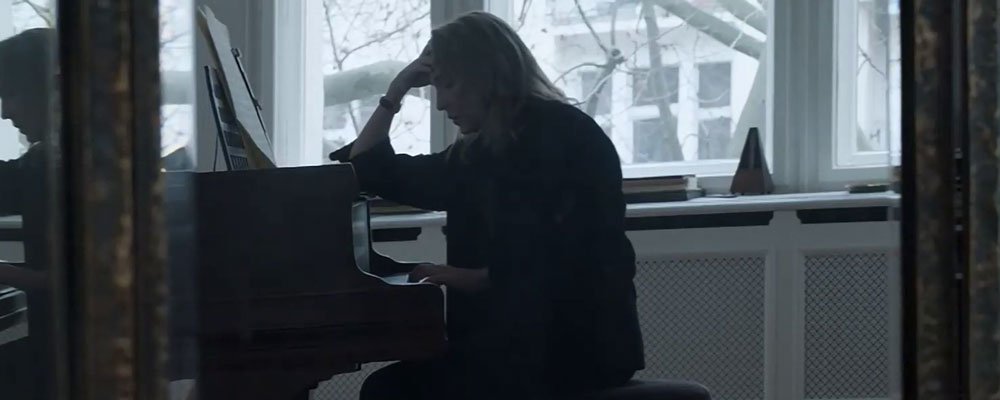
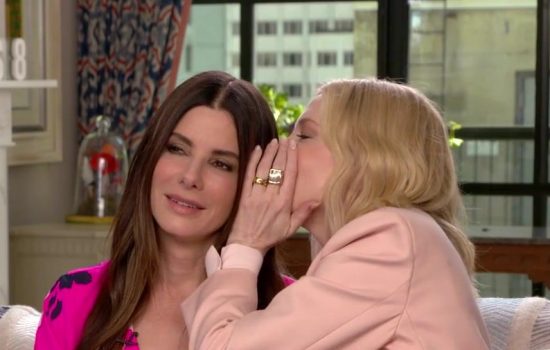


 Black Bag (202?)
Black Bag (202?) Father Mother Brother Sister (2024)
Father Mother Brother Sister (2024) Disclaimer (2024)
Disclaimer (2024) Rumours (2024)
Rumours (2024) Borderlands (2024)
Borderlands (2024) The New Boy (2023)
The New Boy (2023)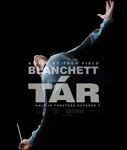 TÁR (2022)
TÁR (2022)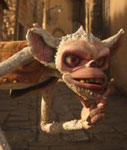 Guillermo Del Toro’s Pinocchio (2022)
Guillermo Del Toro’s Pinocchio (2022)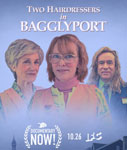 Documentary Now!: Two Hairdressers in Bagglyport (2022)
Documentary Now!: Two Hairdressers in Bagglyport (2022)












